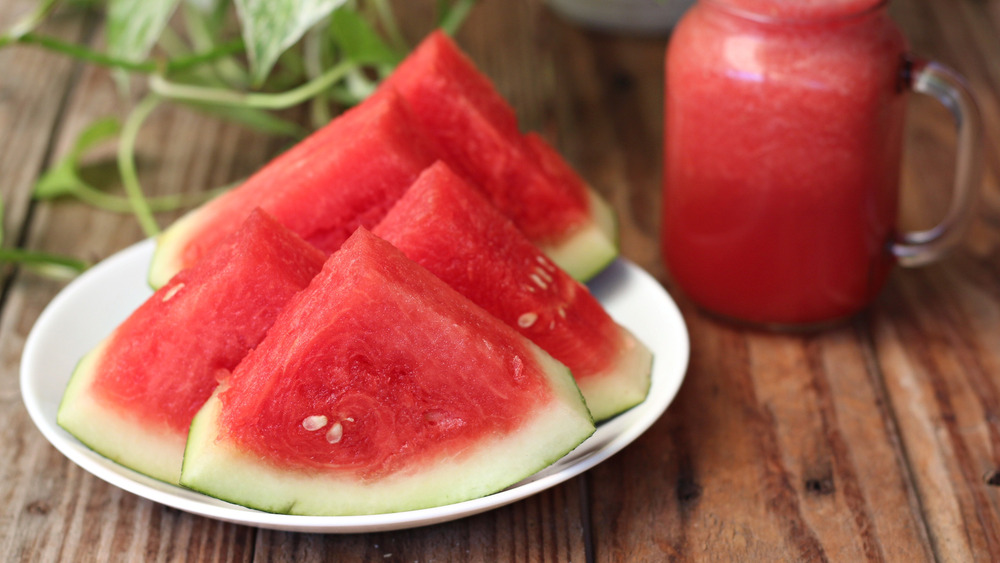The Health Benefits Of Watermelon Explained
Watermelon is a summertime staple for many people. The bright fruit is beautiful, delicious, and super refreshing on a warm day. Aside from looking and tasting great, this snack has many health benefits as well.
One of the most obvious benefits of watermelon is its H2O content. Over 90 percent of this fruit is water (via Medical News Today), making it a satisfying and hydrating treat. While it's important to drink plenty of water each day, eating fruits and vegetables with a high water content can make increasing your fluid intake even easier. Watermelon also contains potassium. This natural electrolyte can help you rehydrate after a hard workout or a long day in the sun.
In addition to potassium, watermelon contains many other vitamins and minerals. It has a high amount of vitamin C, which promotes a healthy immune system and supple skin. This fruit also gives you fiber, magnesium, folate, vitamin A, and zinc in every bite. Talk about a powerful fruit!
Watermelon can help fight disease
The bright pink color of this fruit comes from lycopene, an antioxidant that may reduce your risk of developing certain kinds of cancers (vis Healthline). Lycopene can also help lower your blood pressure and cholesterol levels, and stymie the accumulation of artery-clogging plaque. These benefits can reduce your risk of heart disease and stroke. Other antioxidants found in the fruit can prevent damage caused by free radicals in the body.
Watermelon also has citrulline, which is an amino acid that can improve blood flow and lower blood pressure by widening the arteries and veins. Citrulline can also help reduce muscle soreness and make it easier to keep an active exercise routine without being delayed by achy muscles. You can eat watermelon before or after exercise to experience the benefits.
Because of its relatively low sugar content, high water volume, and numerous health benefits, watermelon makes a great snack or dessert most anytime you're craving it.


